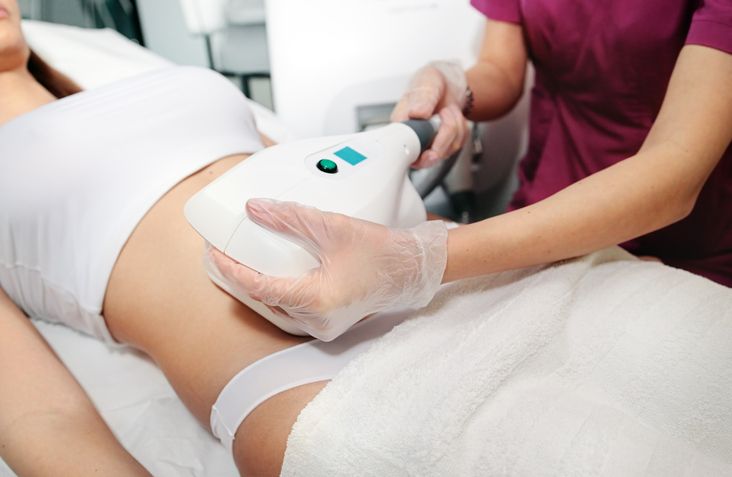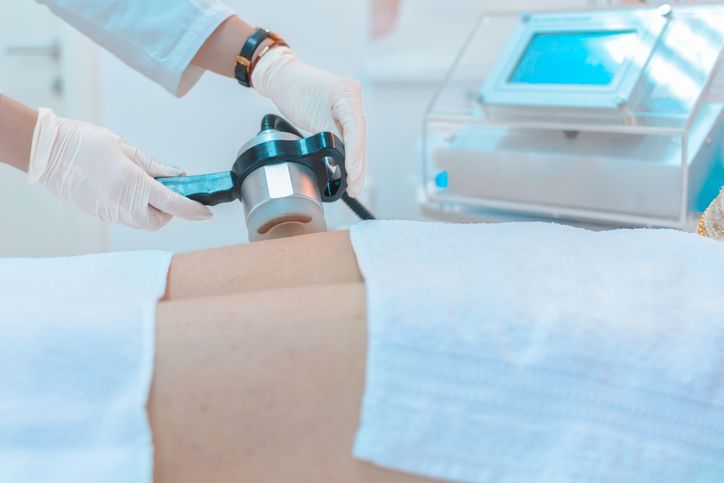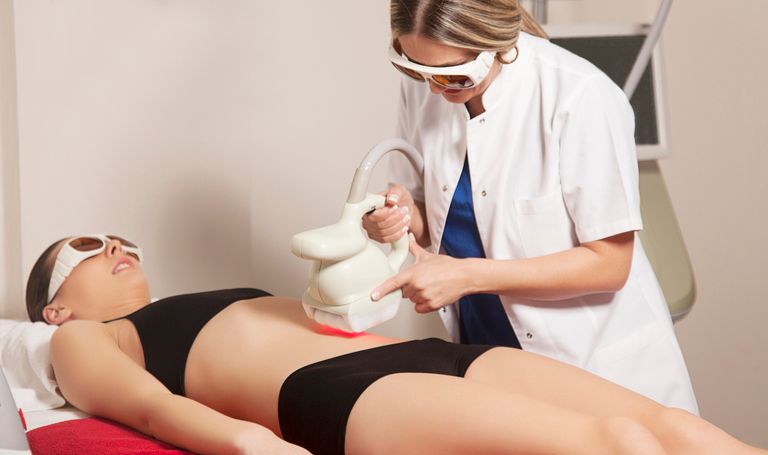
Book Now to Experience
F8 Hair Regrowth Treatment
1 Minute Self-Registration
Date should not be before minimal date
Author: Leila Tan|2024-3-2
Natural hair loss remedies are popular since they are generally safe and have few adverse effects. Herbs, vitamins, minerals, essential oils, and other natural extracts are frequently used in natural hair loss therapies to nourish the hair and scalp. Among the essential oils, peppermint oil seems to get the highest applause when it comes to the best oil for hair growth. It is safe to say that essential oil may stimulate hair growth or decrease hair loss by strengthening the hair strands and supplying the nutrition required for healthy new development, but to understand the best way to boost hair development, you must first understand how the human hair growth cycle works.

1
Human Hair Growth: The Cycle
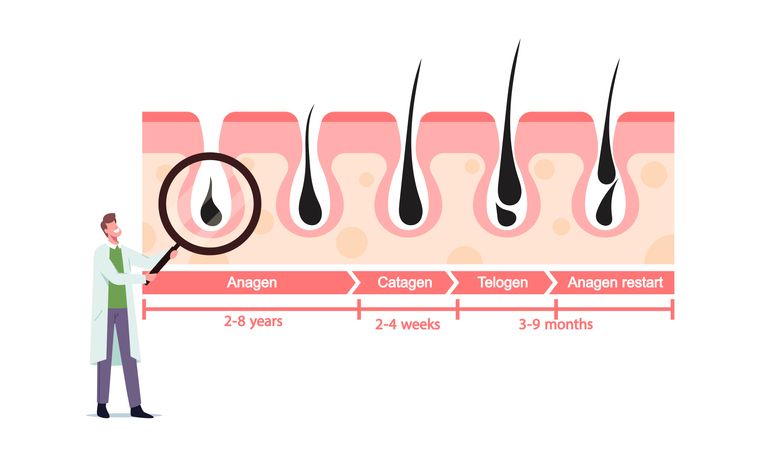
The hair follicles, which are tiny pockets of tissue at the base of each hair strand are where hair growth starts. They are a complex structure made up of many layers, such as the three-layered inner root sheath, the hair matrix, and the hair shaft. At the bottom of each hair follicle is a structure that looks like a bulb. This is called the dermal papilla, and it is full of many small blood vessels that feed and oxygenate the growing hair. There are four different parts to the hair growth cycle: the Anagen phase, the Catagen phase, the Telogen phase, and the Exogen phase.
The anagen phase
During the anagen phase, which usually lasts between 2 and 6 years for head hair and between 6 weeks and 3 months for eyebrows and eyelashes, hair follicle cells divide quickly to make new hairs. This is when hair grows about 1 cm per month, which is the fastest rate.
The catagen phase
Catagen phase is the end of active hair growth. During this phase, cells start to divide and the hair slowly separates from its sheath inside the follicle walls. This process takes about 10 days to finish.
The telogen phase
Telogen phase comes after catagen. It is a time of rest, when old hairs fall out and new ones start to grow underneath. It usually lasts between 3 and 4 months, during which time you might lose 50 to 100 hairs a day when you wash or brush your hair.
The exogen phase
Exogen phase is also called the "shedding" or "effluvium" stage, and it is when more hair falls out. This can be caused by genetics or by things like stress or not getting enough nutrients. During exogen, old hairs that have been pushed out of the way by new hairs fall out from their roots. Over time, they are replaced by newer hairs.
Overall, hair growth cycles vary based on things like age, race, hormonal changes, and so on. Some people grow their hair faster than average, while others may grow their hair slower as they age because of any of these things. Taking good care of your scalp and eating right can help your hair grow in a healthy way over time.

2
How Does Peppermint Oil Help My Hair?
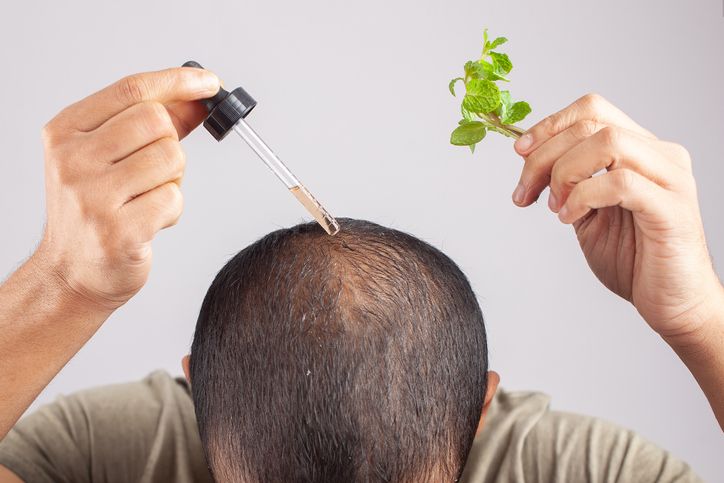
Peppermint oil is a natural essential oil made from peppermint (Mentha piperita) leaves, which have been used for hundreds of years as a medicine and aromatherapy treatment for a wide range of health problems.
Besides that, peppermint oil has antibacterial and antifungal properties that can help fight bacteria and fungus. This makes it a great way to keep your scalp healthy. It also has cooling, stimulating, and calming effects that can make the scalp less red, itchy, and irritated. It also helps blood flow to the hair follicles.
People think that peppermint oil may help hair grow by making the scalp get more blood. This makes the area get more oxygen-rich blood, which helps the follicles grow in a healthy way. Peppermint oil is good for your hair in more ways than just increasing blood flow. Due to the high amount of menthol in it, it can reduce inflammation and strengthen the hair shafts. Menthol makes the scalp less itchy and speeds up hair growth by making it a good place for new hairs to grow faster than usual.
Alternative to other drugs
Besides that, peppermint oil can also be used as an alternative to drugs including minoxidil. Peppermint oils are recognizable essential oils. It has an enjoyable, refreshing smell and cooling effect making it the main ingredient in many natural shampoo and conditioner products. Although peppermint oil is frequently cited to promote hair growth, it has not yet been studied scientifically to the extent of its effect.

3
Ways To Use Peppermint Oil for Hair Loss
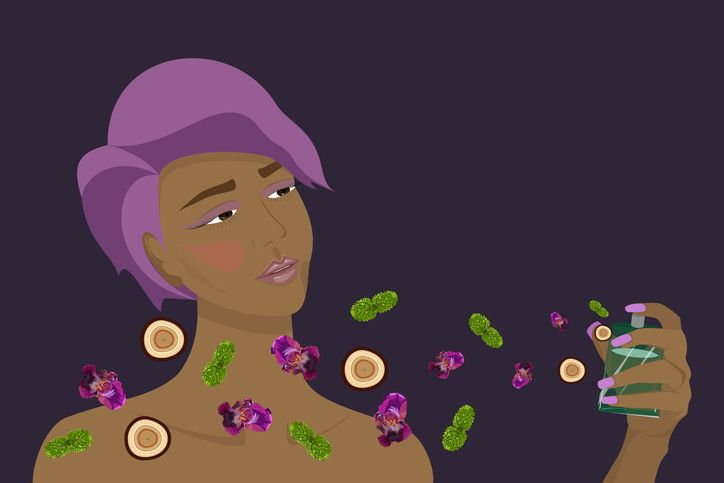
Peppermint oil can be used in different ways to care for hair. Many people choose to use peppermint oil shampoo or conditioner on their hair, while others prefer to take peppermint supplements or put peppermint essential oils directly on their scalp and massage them into their roots before washing them out with warm water.
Who should use peppermint essential oil for hair? Is it suitable for all hair types?
Although peppermint oil stimulates the scalp and hair follicles, it should not be used by persons with dry scalps or delicate hair. It works best on greasy hair and scalp, which is ideal for Singaporeans because the tropical weather causes higher temperatures, which may wreak havoc on oily-haired people because the heat causes us to sweat more and our bodies to create more sebum.
The reason why peppermint essential oil is wonderful for oily hair is because it cleanses, refreshes, and deodorises the hair without stripping the scalp of its natural oils. Consequently, peppermint oil balances your scalp's sebum production, leaving your hair nourished, hydrated, and capable of removing any product buildup or residue.
How you can utilise peppermint essential oil effectively:
1. Cleanse your scalp thoroughly: Before applying peppermint oil to your scalp, make sure that your scalp and hair are clean. Use a gentle shampoo and massage it into your scalp in circular strokes to eliminate any extra oils or grime on the skin's surface.
2. Prepare peppermint hair oil: After cleansing your scalp, prepare peppermint oil by combining it with a carrier oil, such as coconut or jojoba oil, to dilute its concentration and prevent skin irritation. The standard ratio is 5 drops of peppermint oil to 1 tablespoon carrier oil.
3. Apply peppermint oil: Using a dropper, carefully apply the peppermint oil combination to the scalp in sections, rubbing it in with your hands for around two minutes before moving on to the next section. Before proceeding to the following step, ensure that you have properly covered all parts of the scalp.
4. Cover your head with a shower cap or towel after applying peppermint oil so that the heat generated beneath can help open up pores and stimulate circulation inside the scalp for improved absorption of peppermint oil therapeutic characteristics.
5. Leave it on for 30-60 minutes: Allow the peppermint-infused heat to work its magic on your hair for at least 30 minutes and up to an hour before rinsing with warm water followed by a cold rinse to shut open pores and trap moisture inside them.
6. Lock in moisture: After washing out the peppermint oil from your hair, apply a conditioner formulated specifically for dry damaged hair to help nourish strands further while keeping them soft and manageable throughout the day.

4
Peppermint Oil for Hair: Side Effects & Other Essential Oil Alternatives
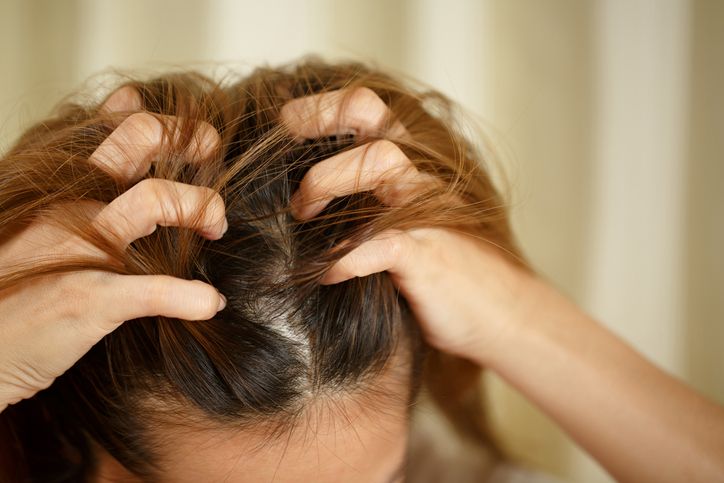
Peppermint oil contains menthol, which can be irritating to some people's skin and scalp. Also, peppermint essential oil that hasn't been diluted could be harmful. It can burn and itch the scalp and should never be used by itself. If peppermint oil for hair loss doesn't work for you, try scalp massage oil or other essential oils to see if they work without irritating your skin. Here are a few essential oil options that you may want to consider:
Tea tree essential oil
Melaleuca oil, or tea tree oil, is an essential oil extracted from the leaves of the Australian tea tree plant (Melaleuca alternifolia). It has been used in traditional medicine for millennia. Tea tree oil contains natural components with anti-inflammatory, antibacterial, and antifungal properties, such as terpenes and phenolic compounds. Due to these properties, it is useful for treating a range of skin conditions, including acne, dandruff, and fungal infections.
In addition to its antifungal and anti-inflammatory characteristics, tea tree oil may give additional benefits for hair development and health. Upon topical application, certain components of tea tree oil have been found to stimulate the activity of enzymes involved in keratin production; this is significant because keratin is a key protein that helps maintain strong and healthy hair strands while also preventing breakage and promoting new hair growth.
Lavender essential oil
Lavender essential oil is a popular oil extracted from the flowering tops of lavender plants. It has been used for centuries to treat many different ailments and conditions, including hair loss. Studies have shown that lavender oil contains certain compounds that can help promote hair growth, by stimulating the scalp and providing nourishing benefits to the hair follicles.
It also helps reduce inflammation on the scalp, which can be caused by excessive oil production or an overgrowth of bacteria or fungi on the scalp. Additionally, lavender oil has antifungal properties that can prevent bacteria and fungi from taking hold in your scalp and causing further damage to your hair follicles. Therefore, regular use of this oil can help restore natural balance in your scalp and promote healthy hair growth over time!
Rosemary essential oil
Rosemary essential oil is a natural oil extracted from the leaves of the rosemary plant. Due to its numerous medicinal properties, it has been used for centuries to strengthen blood circulation and reduce hair loss, by increasing blood flow to the scalp and help to regrow hair.
It also contains substances believed to inhibit DHT, a hormone known to induce hair loss in both men and women. In addition, rosemary oil also helps restore the natural oil balance on the scalp by moisturising the epidermis, reducing dryness and flakiness, which can lead to additional breakage of delicate strands over time. Consistent application of a few drops of rosemary oil can therefore assist maintain current strands while also promoting robust, healthy growth.

Book Now to Experience
F8 Hair Regrowth Treatment
1 Minute Self-Registration
Date should not be before minimal date

5
Other Tips for Healthy Hair Growth

Natural remedies can also help reduce inflammation of the scalp which can lead to increased hair fall or dandruff. Furthermore, many natural products do not contain harsh chemicals or synthetic components that could irritate sensitive skin or cause allergic reactions. Here's several things you may do in your everyday life aside from your regular hair care routine to prevent hair loss and regrow hair.
Start a balanced diet
A well-balanced diet with essential nutrients such as proteins, iron, zinc, vitamin B, and essential fatty acids must be consumed initially. Not only are these nutrients essential for good hair, but also for overall health and well-being. Biotin-rich foods, such as salmon, eggs, lentils, and almonds, promote strong and healthy hair. Moreover, vitamin C-rich foods (citrus fruits) help maintain hair flexibility, while vitamin A-rich foods (sweet potatoes) increase blood circulation on the scalp, thereby nourishing hair follicles and promoting growth.
Wash your hair regularly
Regularly washing your hair helps keep it clean and free of dirt and product residues that can cause hair loss. Washing with a gentle shampoo removes tenacious dirt particles and excess oils that can weigh hair down and make it appear lifeless over time. It is also recommended to apply conditioner after each shampoo to soften hair strands and restore natural shine without stripping the scalp of its protective oils.
Get some scalp massage
Thirdly, regular scalp massage improves blood circulation, which increases oxygen flow and promotes healthier development. This is a result of better blood circulation and delivering more vital nutrients to the scalp, which stimulates new hair growth and gradually thickens existing hair. When massaging your scalp, use gentle circular motions or add a few drops of antifungal essential oils such as lavender or rosemary oil; these can prevent bacterial or fungal infections on the scalp while nourishing existing strands.
Reduce your stress
Stress reduction is important for overall health, but it is especially important for preventing hair loss. Stress can cause existing strands to weaken and break over time; therefore, getting enough restorative sleep at night helps ease the mind while controlling cortisol levels in the body, considerably lowering overall stress levels! This is especially crucial for Singaporeans because we have grown up in a fast-paced environment, so schedule some time for yourself once a week; yoga and meditation have been scientifically demonstrated to reduce anxiety levels, making them excellent stress-relief alternatives!
However, if you are not an essential oil person and would like to try something else promoting hair growth more effectively, you may consider hair growth treatment, and here's good news to end your long search: New Beauty's F8 Hair Regrowth Treatment.

6
Learn More About How F8 Hair Regrowth Treatment Can Promote Hair Growth
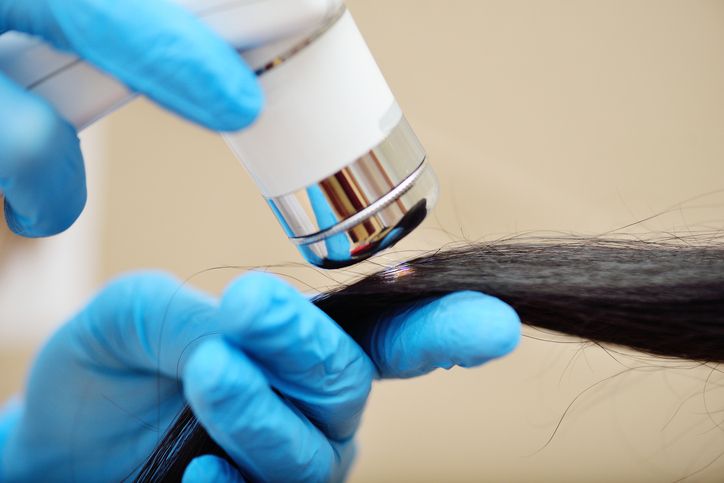
F8 Hair Regrowth Treatment is a non-invasive hair loss treatment that makes use of hair follicles, hair papilla, and blood capillaries in the scalp to stimulate greater hair growth. This medical-grade essence thoroughly cleanses and unclogs the follicles from excess oil, filth, and dust that have become stuck on the scalp, thereby enhancing the condition of your scalp.
Before beginning the F8 Hair Regrowth Treatment, the in-house health professionals analyse your scalp under 200x magnification to determine the potential causes of hair loss. During the session, the therapist evenly distributes low-level laser energy across the scalp to stimulate hair follicles and hair papilla. The energy emitted increases blood flow within blood capillaries, providing nutrients for follicle growth and a healthier scalp.
After the laser emission is complete, there will be hair growth serum application to your scalp evenly. The low laser energy facilitates the absorption of serum into the scalp. This clinical serum decongests pores, hydrates the scalp, and lowers excess oil secretion to maintain the water-oil balance of the scalp, ensuring you to get prominent hair growth effects. Forget about the use of peppermint oil or other hair growth products - Be it oily hair, thinning hair or brittle hair, try the treatment today and witness the magical changes!
FAQ
Does pure peppermint oil for hair help with male pattern baldness?
Many cases of hair loss (such as female or male pattern baldness) are caused by a lack of blood supply to the follicles. Increasing circulation with a vasodilator such as peppermint oil may promote hair growth and prevent some hair loss.
Is there a difference between hair density and hair thickness?
People frequently misunderstand hair density and thickness. Thickness refers to the width of a single hair strand, whereas density refers to how thin or thick a clump of hair strands is. This indicates that a person's hair might be both fine and thick. On the other hand, someone can have thick but not dense hair.
Does ageing affect hair volume?
Almost everyone has hair loss as they age. Additionally, hair growth slows. The hair strands become thinner and less pigmented. Thus, a young adult's thick, coarse hair eventually transforms into thin, fine, light-coloured hair.
Why do I experience scalp itching after the treatment?
It could be because new hair is growing. This is because a lot of hair follicles are working at the same time. But be sure to check to see if the itching starts at the same time as dark spots, baby hair, or peach fuzz. That could mean that your hair is getting thinner.
What should I do after the treatment?
Consume enough water to boost metabolism and blood flow. You may shampoo your hair as usual. However, severe water temperatures should be avoided.

Book Now to Experience
F8 Hair Regrowth Treatment
1 Minute Self-Registration
Date should not be before minimal date
Recommended Articles
COPYRIGHT© NEW BEAUTY MANAGEMENT LIMITED 2024. ALL RIGHT RESERVED.

